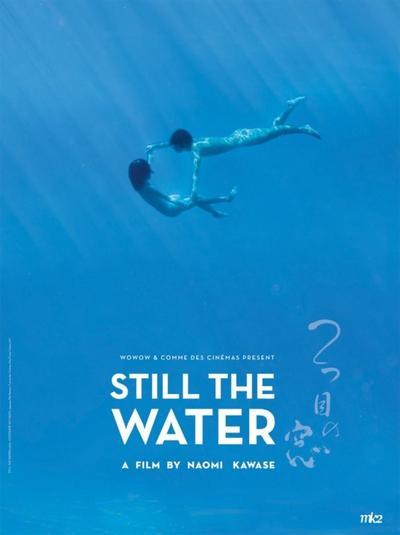Quote:
A passionate writer of film versions for the visually impaired meets an older photographer who is slowly losing his eyesightRead More »
Naomi Kawase
-
Naomi Kawase – Hikari AKA Radiance (2017)
2011-2020DramaJapanJapanese Female DirectorsNaomi KawaseRomance -
Naomi Kawase – Mogari no mori AKA The Mourning Forest (2007)
2001-2010DramaJapanJapanese Female DirectorsNaomi KawaseQuote:
A care-giver at a small retirement home takes one of her patients for a drive to the country, but the two wind up stranded in a forest where they embark on an exhausting and enlightening two-day journey.Read More » -
Naomi Kawase – An AKA Sweet Bean (2015)
2011-2020DramaJapanJapanese Female DirectorsNaomi KawaseQuote:
It is easy to forget what a breath of fresh air Kawase Naomi once seemed within Japanese filmmaking circles when she first emerged, aged just 18, at the turn of the 1990s with a series of highly personal Super 8 diaries and experimental films. The subsequent international recognition for her Caméra d’Or-winning feature debut Suzaku (1997) trailblazed a path for a new generation of women directors, such as Nishikawa Miwa and Tanada Yuki, who have since established successful commercial careers, slowly eroding the long-entrenched gender imbalance within the industry.Read More » -
Naomi Kawase – Futatsume no mado AKA Still the Water (2014)
Drama2011-2020ArthouseJapanJapanese Female DirectorsNaomi KawaseOn the subtropical Japanese island of Amami, traditions about nature remain eternal. During the full-moon night of traditional dances in August, 16-year-old Kaito discovers a dead body floating in the sea. His girlfriend Kyoko will attempt to help him understand this mysterious discovery. Together, Kaito and Kyoko will learn to become adults by experiencing the interwoven cycles of life, death and love. (~festival-cannes.fr)Read More »
-
Naomi Kawase – Sharasojyu aka Shara (2003)
2001-2010ArthouseAsianDramaJapanJapanese Female DirectorsNaomi KawaseA film about mourning and its eventual passing. Like in Antonioni’s L’avventura and in Fahrhadi’s About Elly, the unexplained, unresolved disappearance of a central character puts into motion the complex interplay between the public and personal dimension of mourning. Kawase herself plays the mother who, seven years after the disappearance of one of her twins, is heavily pregnant again. This coincides with upsetting news from the authorities. The family and neighbours and friends are plunged once more into the work of mourning. But by means of an extraordinary street festival, a family ceremony of acceptance in which the curse of the disappeared is at last transformed into a benign omen for the coming birth, and the birth of a new family member the trance-like state of collective dissociation is broken. Ultimately, it is not just the disappeared twin who can pass on to the next life in peace, but the entire family. The three core scenes, the festival, the ceremony, and the birth are overwhelmingly effective, in part due to Kawase’s (and her team’s) subtle control, in part due to the impossible admixture of calm and joyous exuberance. If the ending does suggest notions of rebirth, release from the curse of eternal return and memory, it is accomplished, like the entire film, in the absence of dogma. There is no lesson here other than that life ought to be gentle.Read More »




